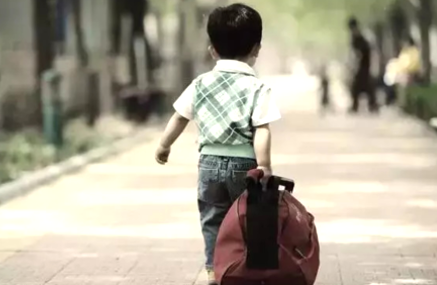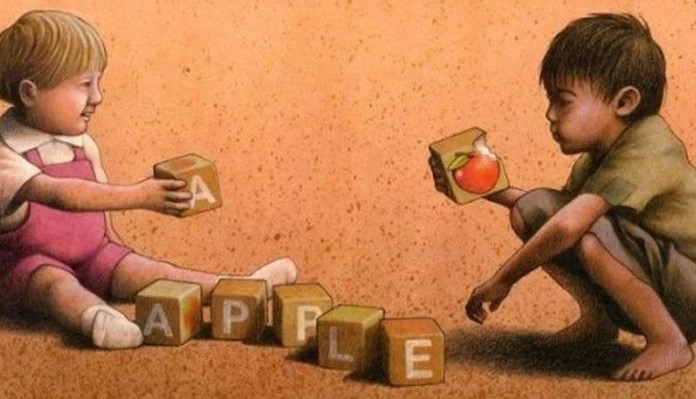Parents love their children and want to provide them with the best, avoiding any hardships. Some parents grew up in difficult circumstances and do not want their children to experience the same hardships they did. They try their best to give their children everything they need, so that they do not feel inferior or insecure.
However, this excessive love and protection can backfire. Instead of teaching their children about reality and core values, parents try to equip them with material possessions, without considering their family’s financial limitations and their own resilience.

From an emotional perspective, parents do this out of love for their children. But in reality, they are pushing them into a dead end, making them materialistic and preventing them from truly appreciating their parents. This sacrifice by parents sometimes results in children who do not understand the importance of things and only focus on comparing themselves with their peers, lacking self-confidence from within and relying on external appearances to cover their insecurities.
There are families with limited financial resources that go into debt just to provide their children with the best of everything, so that they can compete with their friends. However, there are better alternatives that can reduce the pressure.
Most parents work for the future and for the sake of their children. But unintentionally, this makes children solely focused on enjoying life and when they face real difficulties and cannot meet certain standards, they blame their parents for not providing them with the same privileges as their peers.
Moreover, this excessive love and protection also creates an unrealistic image of their families in the children’s minds. Confidence is important, but confidence without a foundation will be fragile.
Children from wealthy families who have a strong support system experience the hardships and sacrifices their parents go through, rather than just enjoying the privileges. Meanwhile, children from extremely wealthy families are given everything unconditionally and easily.
Therefore, families with limited financial resources should not try to use material possessions to make their children feel equal to their peers at any cost.

If you’re not rich, raise your children like you’re not rich?
Many people wonder what the best way is to raise children in a less privileged family. What should parents do if their children feel materially lacking and have low self-esteem?
A child who grows up in a poor family but is taught about love, sees their parents’ effort and values hard work will gradually absorb those qualities. Parents should not say “no” to their children in a helpless and irresponsible manner, using rejection to disappoint and discourage them. Instead, be honest with your child and say “this is beyond our means”. And most importantly, there is always a way, even if it’s not the conventional one. Parents should let their children know that money is important and valuable, but not everything can be measured by its monetary value.
Show your children that there are things that can bring joy and happiness without spending a lot of money. To do this, you need to be a confident parent with the right mindset about money. Value money but don’t sacrifice everything for it. Overcome adversity with your limited financial resources. For example, instead of taking your children to an extravagant Mid-Autumn Festival celebration, you can take them to the suburbs where they can admire the moon in its purest form, without the distractions of city lights. If your child cannot have expensive new clothes, make their existing clothes special by adding a unique touch to them.
However, in matters that are necessary, do not let your child feel deprived, do not be overly strict or excessively frugal. By striking a balance, your child can be happy and not obsessed with money, while still appreciating its value and being confident.
Avoid comparing yourself and your family’s financial situation to others, as it will make your child feel helpless and unworthy. Strive every day and create happiness within your means, so that your child understands that money can “buy” certain things, but without money, we can still accomplish a lot through our own efforts.
Especially when the family is financially strained, do not neglect your child to focus solely on finances, as they may lose their sense of direction. Dedicate some time to your child’s development, identify their strengths, and praise them more. If they struggle with something, be ready to help them. This will boost their confidence.
Teach your child to differentiate between necessities and luxury items when they demand expensive gifts. And always remember the principle of “not giving your child something beyond your means”.
There are successful children from poor families and spoiled children from wealthy families. The most important factor is not wealth itself, but the foundation of education and how it is provided within each family.
Learning Tips for Parents: 12 Japanese Techniques to Use with Your Children
Discover the 12 principles of teaching children in the traditional Japanese way that parents can learn with Dien May XANH! By instilling these principles when your children are young, you can ensure that they grow up to be obedient, smart and polite, the hallmarks of a successful education in Japan.



































